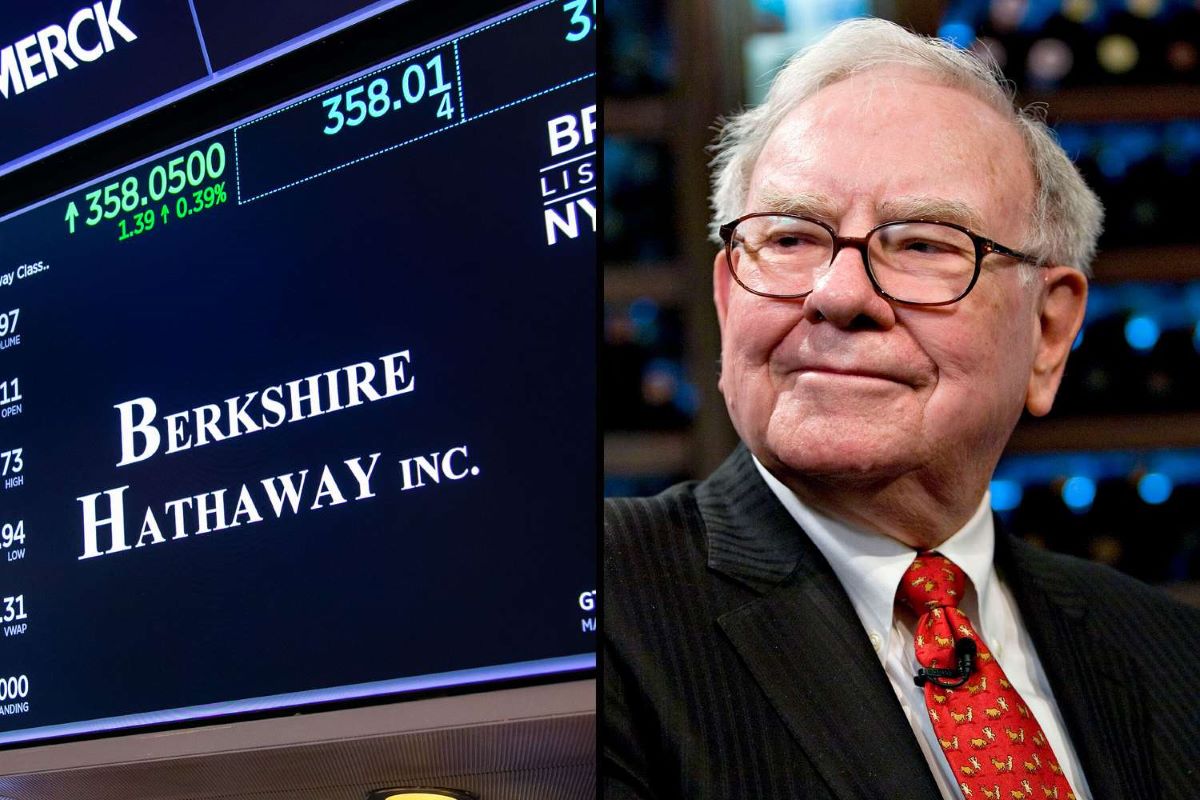Berkshire's Annual Meeting Preview: Buffett's Take on Record Cash Pile, Tariffs, U.S.-China, Gold, and More
The annual "Woodstock for Capitalists" is set to take place May 2–4 in Omaha, with Warren Buffett, now 94, taking center stage once again. Alongside his designated successor Greg Abel and insurance ch

The annual "Woodstock for Capitalists" is set to take place May 2–4 in Omaha, with Warren Buffett, now 94, taking center stage once again. Alongside his designated successor Greg Abel and insurance chief Ajit Jain, Buffett will field questions from global investors. This year's meeting carries added weight: amid escalating tariff tensions, U.S.-China trade war, and volatile markets, investors are eager to hear Buffett's views on everything from trade policy to tech, cash reserves, gold, and geopolitical risks.
It also marks the 60th anniversary of Buffett acquiring Berkshire Hathaway—once a failing textile mill, now an empire straddling the core of the U.S. economy. And given Buffett's age, many wonder: could this be his last annual meeting appearance.
Buffett Dumps Apple, Hoards $334 Billion in Cash Reserve, Becomes Top Holder of U.S. Short-Term Debt
Buffett's recent portfolio shifts signal a strong tilt toward caution. Last year, Berkshire slashed its apple stake by nearly 70%, cashing out over $100 billion. Apple remains Berkshire's top holding, but its portfolio share dropped from 50% to 28%. Buffett also dumped major positions in bank stocks, including 350 million shares of Bank of America and 40 million shares of Citigroup.

Meanwhile, Berkshire's cash pile soared to a record $334.2 billion by year-end, a 48% year-over-year jump. Over $300 billion of that was parked in short-term Treasuries—about 5% of the entire U.S. T-bill market, far exceeding the Fed's holdings of $195 billion.
Why the selloff? Is Buffett bracing for a downturn or waiting for opportunity? These will be central questions on May 3. For someone who once preached never selling great companies, last year's exits signal a growing concern about medium-term risks. Buffett moves also allowed him to sidestep the April market selloff—whether that was due to foresight on Trump's policy path or broader macro anxieties remains to be seen.
Trump's Tariffs, Global Trade, and Buffett's Warning
With Donald Trump pushing aggressive tariff policies and threatening global trade norms, politics and economics are more entwined than ever. Buffett has long been a staunch advocate for free trade and warned against tariffs as "an act of war" in March, and described tariffs as a tax on American consumers.
In 2019, Buffett said a full-blown trade war would be "bad for the entire world." That message is more relevant today, as tensions between the U.S. and China escalate. Charlie Munger once noted that the U.S. should prioritize free trade with China, pursue "in mutual interest".
Buffett is expected to reiterate these views, while investors will closely watch how he navigates his portfolio amid trade disruptions—particularly how Berkshire businesses like railroads, utilities, insurance, and iconic consumer brands work out during uncertainties.
Soaring Gold, Yields , and losing "U.S. exceptionalism"
Trump has signaled an intent to weaken the dollar and force the Fed into rate cuts—moves aimed at boosting exports and managing the growing debt burden. Meanwhile, surging gold prices reflect rising geopolitical risk and eroding confidence in U.S. exceptionalism. Yet Buffett has long dismissed gold as unproductive. In 2011, he wrote that gold "just sits there" with limited demand, and generates no value—unlike businesses, farmland, or real estate.

Still, with gold at record highs and 10-year Treasury yields climbing, markets are pricing in a world of uncertainty. Buffett's view on the value of cash, productive assets, and the role of gold as a hedge could carry new significance this year.
Doubling Down on Japan, Eyes on Occidental
While cutting U.S. exposure, Buffett has been bullish on Japan. Berkshire recently announced it had exceeded the 10% threshold in Japan's top five trading houses and plans to hold them "indefinitely." Buffett has been using cheap yen to finance purchases of Japanese equities since 2020. His continued enthusiasm for Japan—paired with a retreat from U.S. stocks—sends a powerful message.
Meanwhile, Buffett's bet on Occidental Petroleum has investors watching closely. He now owns 28% of the company and could move to acquire further if prices dip. Energy security and capital efficiency make it a long-term play in Berkshire's book.
60 Years of Berkshire: Looking Back, Looking Ahead
This year marks six decades since Buffett took over Berkshire. The company now sits at the heart of American business and infrastructure. With succession plans in place, Buffett's legacy is already secured—but investors will cherish every chance to hear from him.
Whether this will be his final stage appearance is unknown. But what's clear: in a world of chaos, markets still turn to Buffett for clarity.

Disclaimer: The views in this article are from the original Creator and do not represent the views or position of Hawk Insight. The content of the article is for reference, communication and learning only, and does not constitute investment advice. If it involves copyright issues, please contact us for deletion.